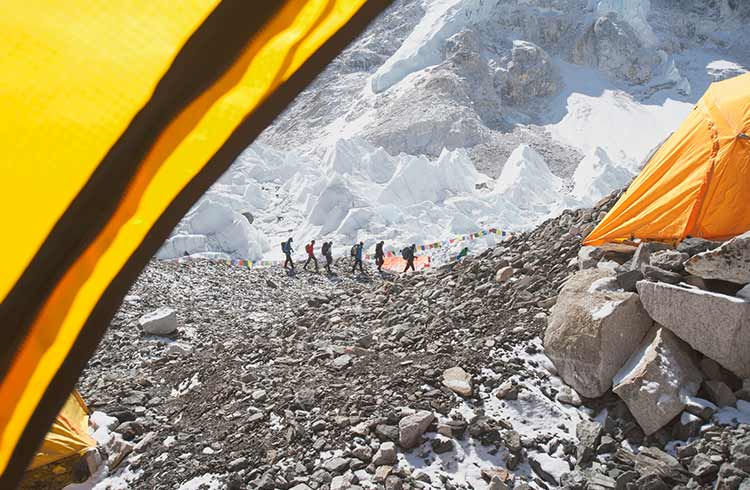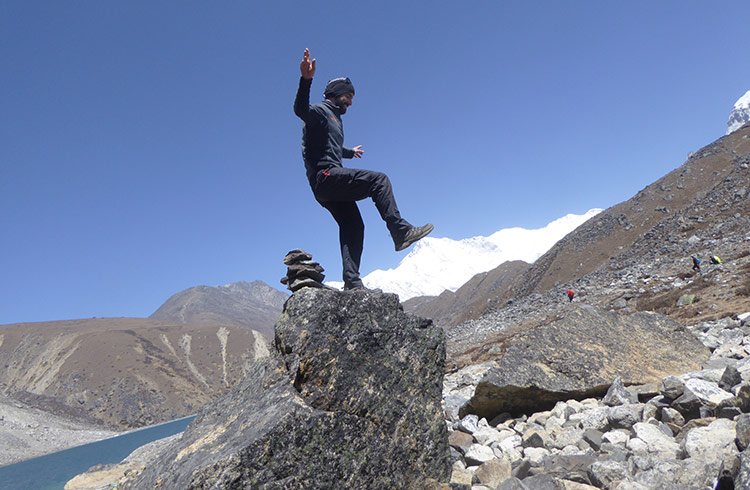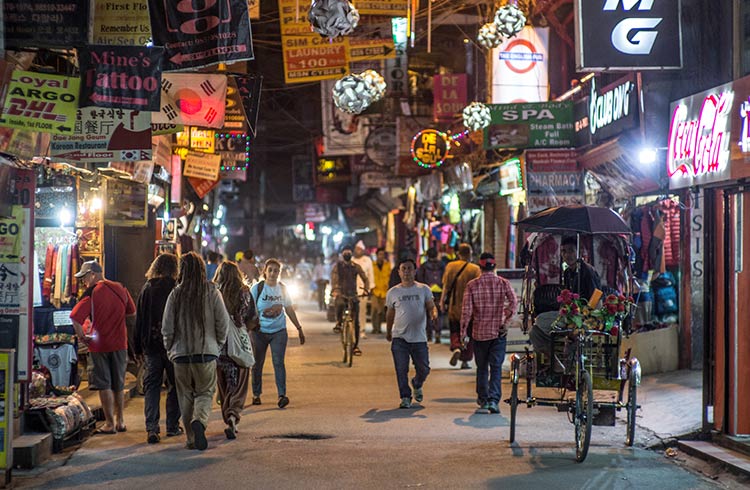5 Travel Hygiene Tips to Help You Stay Healthy in Nepal
Nepal is a fascinating country to visit, with lots to see and do. There are, however, health-related issues that travelers need to be mindful of when planning a trip.
 Photo © Getty Images/Mint Images
Photo © Getty Images/Mint Images
Poor sanitation, altitude sickness, air pollution, and rabies are just some health concerns in Nepal. Find out how to stay healthy before you go with these tips.
- Can I drink tap water in Nepal?
- Basic hygiene in Nepal
- Rabies risk in Nepal
- Preventing Malaria
- Air pollution
Can I drink tap water in Nepal?
The tap water and river water in Nepal is unsafe to drink and visitors have a choice between bottled water, purification tablets, or boiling water. If you are boiling water, make sure you boil it longer at altitude, as the time to boil properly is greater than at sea level. Make sure you check that the camp team, who may be boiling water, adhere to these rules. When buying bottled water, make sure the top has not been tampered, as there are a minority of water sellers who fill empty bottles with tap water. Drinking sufficient amounts of water in Nepal is essential to avoid the risk of dehydration.
Basic hygiene in Nepal
When traveling in Nepal, it's important to maintain standards of hygiene to avoid diarrhea and vomiting. This is particularly important if you're camping on a trek, for example, as the effects of illness whilst walking can be debilitating. Wash your hands before and after meals and in camp use an alcohol hand gel. After using the toilet wash your hands thoroughly. In some camps, drop toilets are used. For this reason, leave your boots in the outer part of your tent – not the inside where you sleep and put your hands. Use shoe bags to avoid contamination of your belongings. Giardia is an unpleasant gastrointestinal parasite found in contaminated water in Nepal.
Rabies risk in Nepal
Rabies is common in Nepal and it's best to avoid stroking dogs, cows, and other animals that are found in the countryside and all over the streets of Kathmandu. Wash your hands after touching animals. Any licks and saliva from animals should be cleaned up immediately and if you are scratched or bitten, you will need to consider a rabies injection.
Preventing Malaria
If you are visiting the Terai in Nepal, this lowland part is a malarial zone and you will need to seek medical advice before travelling and take anti-malarial tablets. In the evenings, wear long trousers and longer sleeves, and use an insect repellent to avoid being bitten by mosquitoes.
Air pollution
The air quality in Kathmandu is full of belching exhaust fumes and open fires which when combined with altitude and heat is a risk to asthmatics and can cause sore throats and colds. Acquiring a chest infection is very common in Nepal.
Related articles
Simple and flexible travel insurance
You can buy at home or while traveling, and claim online from anywhere in the world. With 150+ adventure activities covered and 24/7 emergency assistance.
Get a quote

No Comments